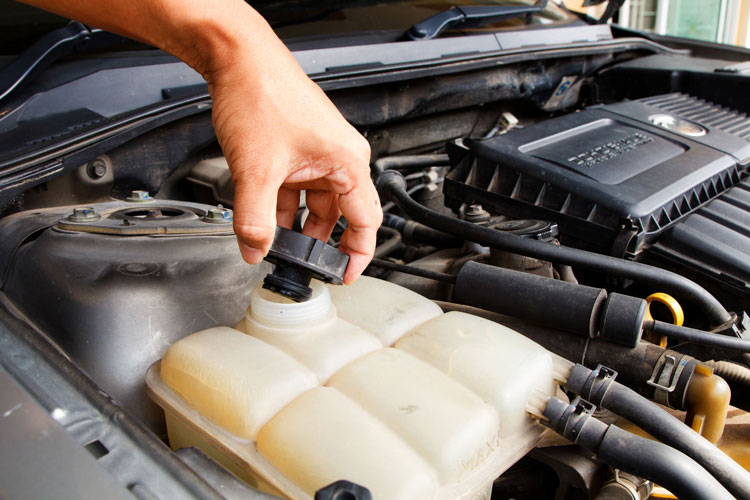
There are quite a few fluids you should check to keep your car safe and performing at its best. They should be kept at the proper levels, and most need to be changed (replaced) periodically. Here’s a quick list of the fluids and filters found in most vehicles. You’ll need to check your owner’s manual for how to check, how often to check, and how often to replace each one.
Gasoline
Well, duh, that’s obvious. But many people don’t know that there’s a gas filter that needs to be changed regularly. If it becomes clogged you may think you have a major engine problem when actually it’s just a neglected quick and inexpensive maintenance item.
Oil and Filter Change
Regular oil changes are one of the most important aspects of preventive maintenance. That’s because oil’s ability to protect and lubricate the engine degrades over time. It varies with the type of vehicle, but most of today’s automobiles should have an oil change every 5,000 miles or every 6 months, whichever comes first. It’s not always necessary to change the oil filter with every motor oil change, but that’s the most convenient time. If the engine oil light on you dash comes on it’s a big problem, not a reminder. Levels are so low that continued driving, especially at highway speeds, can soon lead to major damage. So learn to check the level yourself, and do so every time you fill up.
Radiator Coolant
Coolant transfers heat from the engine to the radiator. There’s no filter along the way, but over time additives that help protect the engine and water pump break down. So this fluid needs to be replaced, typically every 30,000 miles( although that varies widely). A separate coolant reservoir exchanges coolant with the radiator, and may need topping off from time to time. Never use plain water as its lower boiling point provides less cooling, there’s no protection against freezing, and it may foul small circulation channels in the motor.
But Wait, There’s More
There are several other fluids in your car, truck, SUV, or van. Your mechanic should check the fluid levels and be changing the fluids according to the vehicle manufacturer’s maintenance schedule. But for extra safety and perhaps heading a problem or two you can check them yourself. That helps keep your car running better and lasting longer.
Brake Fluid
Clearly a safety-critical item, you should check your car’s owner manual to locate the brake fluid reservoir so that you can check the fluid level yourself. Every time you stop for gas isn’t a bad idea, even though there’s rarely a problem with proper vehicle maintenance.
Automatic Transmission Fluids
Not something you can readily attend to yourself, transmission fluid is usually checked, topped off, or replaced as part of scheduled maintenance services. But you should be on the look out for leaks of a reddish fluid under the transmission.
Power Steering Fluid
Both brakes and power steering are hydraulic systems, but use different fluids. So there’s a separate power steering fluid reservoir to check.
Washer Fluid
No biggie here. Just check your windshield washer fluid reservoir from time to time (and especially before a trip) and top it off as needed. Don’t use plain water as it can freeze (including on the windshield!), isn’t as effective at cleaning, and may contain minerals that eventually clog the pump or squirting nozzles.
A/C Refrigerant
Under pressure, air conditioning refrigerant is a liquid. But it rarely leaks. It should be checked by a mechanic as part of a preventive maintenance schedule.
Air Filter
OK, this has nothing to do with liquids. But it is a filter that needs to be changed regularly following your vehicle manufacturers schedule to keep your car or truck performing at its best.
